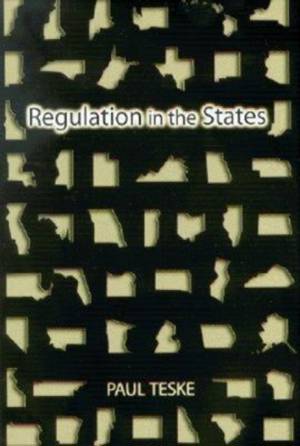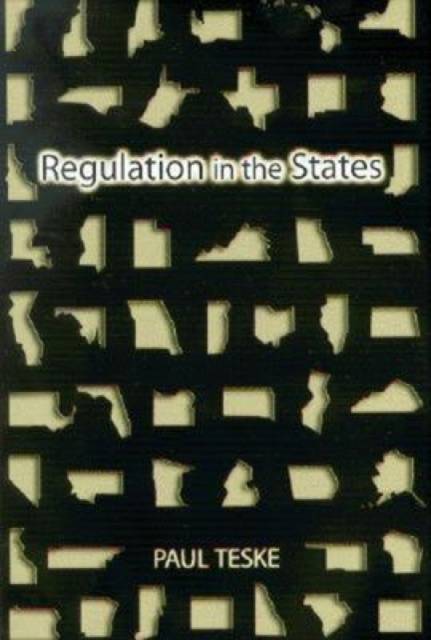
- Retrait gratuit dans votre magasin Club
- 7.000.000 titres dans notre catalogue
- Payer en toute sécurité
- Toujours un magasin près de chez vous
- Retrait gratuit dans votre magasin Club
- 7.000.0000 titres dans notre catalogue
- Payer en toute sécurité
- Toujours un magasin près de chez vous
Description
Deregulation continues to be a hot-button issues in the United States. While the national debates rage, however, regulation at the state level still flies below the public's radar screen, although it is critically important. Paul Teske provides the foundation necessary to assess competing claims about state-level economic regulation in a time of turbulent politics and uncertain economics. He has produced an indespensable resource, offering both depth and breadth. Regulation in the States provides original quantitative analyses of state-level regulation across all the states in ten important sectors such as telecommunications, electricity, and professional licensing. Each section uses the same template for research and discussion, enabling cross-comparison among industries. Teske finds that commonly held fears of regulatory capture by industry are overblown, as are worries about an inevitable ""race to the bottom."" Legislatures and agencies still tend to base their policy decisions on their own ideologies and analysis. Teske also examines important exceptions, however, such as the case of occupational regulation. State-level regulation is neither inherently evil nor universally wise. The truth is somewhere in between, often found among the details. Nobody would argue it is perfect, however, and Teske assesses a wide range of possible reforms.
"Spécifications
Parties prenantes
- Auteur(s) :
- Editeur:
Contenu
- Nombre de pages :
- 275
- Langue:
- Anglais
Caractéristiques
- EAN:
- 9780815783138
- Date de parution :
- 06-02-04
- Format:
- Livre broché
- Format numérique:
- Trade paperback (VS)
- Dimensions :
- 148 mm x 228 mm
- Poids :
- 385 g

Les avis
Nous publions uniquement les avis qui respectent les conditions requises. Consultez nos conditions pour les avis.






